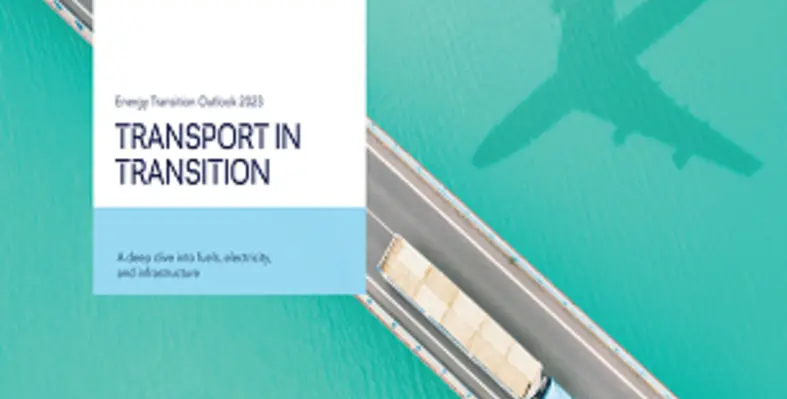The share of electricity in transport will grow from 1% today to 23% in 2050, according to DNV’s latest ‘Transport in Transition’ report
The report explores the vast changes in fuels, electricity and infrastructure needed to transport growing numbers of people and volumes of freight while at the same time decarbonising the sector.
Despite oil demand in the transport sector forecast to half by 2050, the present pace of the transition still falls severely short of the goals of the Paris Agreement, the report says. Opportunities to accelerate change through pilot projects and uptake of alternative energy need to be seized as soon as possible. Today, transport of passengers and goods accounts for about a quarter of global energy-related CO2 emissions, a share that will grow to 30% by 2050. Among the main energy demand sectors, transport remains the dominant consumer of oil to 2050, still accounting for 50% of global oil primary supply in 2050 despite the accelerating shift to electricity, SAF, hydrogen, and ammonia in road, aviation, and maritime transport.
Road transport leads the way in reducing reliance on fossil fuels, falling from 38mn bpd, to 19mn bpd in 2050, reducing share from 91% to 57%. 78% of all road transport will be electric by 2050. Conversely, the consumption of oil within aviation will be virtually flat to 2050, with hydrocarbons set to have a 60% share in the sector in the same year.
Driven by the decarbonisation push, the fuel mix in the maritime sector will also change significantly over the coming decades. By 2050, it will likely transition from being almost entirely oil-based to an energy mix comprising of 50% low- and zero-carbon fuels, 19% natural gas and 18% biomass. Electricity will obtain only a 4% share, from short sea shipping and port stays for larger vessels.
Regions such as Europe, North America and Greater China are frontrunners in the uptake of battery electric vehicles (BEVs), while regions including Sub Saharan Africa and North East Eurasia remain far away from establishing the infrastructure and producing the quantities of renewable electricity required to decarbonise road transport. In the Middle East, the report notes the increased efforts seen in EV promotion through introduction of generous uptake incentives in the UAE, and support to onshore EV manufacturing in Saudi Arabia.
Remi Eriksen, group president and CEO at DNV said, “Our Transport in Transition report highlights the challenges facing the industry and where further policies and investments are urgently needed to fast-track decarbonisation of the transport sector. There is a pressing need for reliable non-fossil fuels to support emission reductions, particularly in the maritime and aviation sectors. It is essential that policy makers accelerate efforts to incentivise research and development, pilot projects and commercial uptake of carbon-neutral and zero-carbon fuels across the transport sector to support mid-century net zero goals.”
The report also underlines the clear challenge in deriving a single solution for the decarbonisation of transport with a number of constraints associated to the adoption of biofuels, renewable electricity and CO2. There is no ‘one size fits all’ with a variety of energy sources needed to tackle the challenge in each sector, such as BEVs for passenger vehicles and trucks, fuel cell electric vehicles for the heaviest long-distance trucks, and bio- or hydrogen-based synthetic low or zero-carbon fuels for maritime and aviation.







